38 start with N start with N

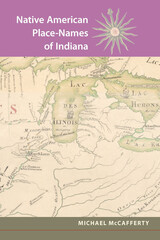
A linguistic history of Native American place-names in Indiana
In tracing the roots of Indiana place names, Michael McCafferty focuses on those created and used by local Native Americans. Drawing from exciting new sources that include three Illinois dictionaries from the eighteenth century, the author documents the language used to describe landmarks essential to fur traders in Les Pays d’en Haut and settlers of the Old Northwest territory. Impeccably researched, this study details who created each name, as well as when, where, how and why they were used. The result is a detailed linguistic history of lakes, streams, cities, counties, and other Indiana names. Each entry includes native language forms, translations, and pronunciation guides, offering fresh historical insight into the state of Indiana.
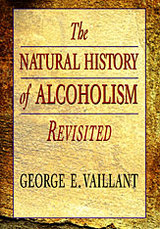
When The Natural History of Alcoholism was first published in 1983, it was acclaimed in the press as the single most important contribution to the literature on alcoholism since the first edition of Alcoholic Anonymous’s Big Book. George Vaillant took on the crucial questions of whether alcoholism is a symptom or a disease, whether it is progressive, whether alcoholics differ from others before the onset of their alcoholism, and whether alcoholics can safely drink. Based on an evaluation of more than 600 individuals followed for over forty years, Vaillant’s monumental study offered new and authoritative answers to all of these questions.
In this updated version of his classic book, Vaillant returns to the same subjects with the perspective gained from fifteen years of further follow-up. Alcoholics who had been studied to age 50 in the earlier book have now reached age 65 and beyond, and Vaillant reassesses what we know about alcoholism in light of both their experiences and the many new studies of the disease by other researchers. The result is a sharper focus on the nature and course of this devastating disorder as well as a sounder foundation for the assessment of various treatments.

An unrivaled compendium of ancient Roman knowledge.
Pliny the Elder, Gaius Plinius Secundus (AD 23–79), a Roman of equestrian rank of Transpadane Gaul (N. Italy), was uncle of Pliny the letter writer. He pursued a career partly military in Germany, partly administrative in Gaul and Spain under the emperor Vespasian, and became prefect of the fleet at Misenum. He died in the eruption of Vesuvius when he went to get a closer view and to rescue friends. Tireless worker, reader, and writer, he was author of works now lost; but his great Natural History in thirty-seven books with its vast collection of facts (and alleged facts) survives—a mine of information despite its uncritical character.
The contents of the books are as follows. Book 1: table of contents of the others and of authorities; 2: mathematical and metrological survey of the universe; 3–6: geography and ethnography of the known world; 7: anthropology and the physiology of man; 8–11: zoology; 12–19: botany, agriculture, and horticulture; 20–27: plant products as used in medicine; 28–32: medical zoology; 33–37: minerals (and medicine), the fine arts, and gemstones.
The Loeb Classical Library edition of Natural History is in ten volumes.

An unrivaled compendium of ancient Roman knowledge.
Pliny the Elder, Gaius Plinius Secundus (AD 23–79), a Roman of equestrian rank of Transpadane Gaul (N. Italy), was uncle of Pliny the letter writer. He pursued a career partly military in Germany, partly administrative in Gaul and Spain under the emperor Vespasian, and became prefect of the fleet at Misenum. He died in the eruption of Vesuvius when he went to get a closer view and to rescue friends. Tireless worker, reader, and writer, he was author of works now lost; but his great Natural History in thirty-seven books with its vast collection of facts (and alleged facts) survives—a mine of information despite its uncritical character.
The contents of the books are as follows. Book 1: table of contents of the others and of authorities; 2: mathematical and metrological survey of the universe; 3–6: geography and ethnography of the known world; 7: anthropology and the physiology of man; 8–11: zoology; 12–19: botany, agriculture, and horticulture; 20–27: plant products as used in medicine; 28–32: medical zoology; 33–37: minerals (and medicine), the fine arts, and gemstones.
The Loeb Classical Library edition of Natural History is in ten volumes.

An unrivaled compendium of ancient Roman knowledge.
Pliny the Elder, Gaius Plinius Secundus (AD 23–79), a Roman of equestrian rank of Transpadane Gaul (N. Italy), was uncle of Pliny the letter writer. He pursued a career partly military in Germany, partly administrative in Gaul and Spain under the emperor Vespasian, and became prefect of the fleet at Misenum. He died in the eruption of Vesuvius when he went to get a closer view and to rescue friends. Tireless worker, reader, and writer, he was author of works now lost; but his great Natural History in thirty-seven books with its vast collection of facts (and alleged facts) survives—a mine of information despite its uncritical character.
The contents of the books are as follows. Book 1: table of contents of the others and of authorities; 2: mathematical and metrological survey of the universe; 3–6: geography and ethnography of the known world; 7: anthropology and the physiology of man; 8–11: zoology; 12–19: botany, agriculture, and horticulture; 20–27: plant products as used in medicine; 28–32: medical zoology; 33–37: minerals (and medicine), the fine arts, and gemstones.
The Loeb Classical Library edition of Natural History is in ten volumes.

An unrivaled compendium of ancient Roman knowledge.
Pliny the Elder, Gaius Plinius Secundus (AD 23–79), a Roman of equestrian rank of Transpadane Gaul (N. Italy), was uncle of Pliny the letter writer. He pursued a career partly military in Germany, partly administrative in Gaul and Spain under the emperor Vespasian, and became prefect of the fleet at Misenum. He died in the eruption of Vesuvius when he went to get a closer view and to rescue friends. Tireless worker, reader, and writer, he was author of works now lost; but his great Natural History in thirty-seven books with its vast collection of facts (and alleged facts) survives—a mine of information despite its uncritical character.
The contents of the books are as follows. Book 1: table of contents of the others and of authorities; 2: mathematical and metrological survey of the universe; 3–6: geography and ethnography of the known world; 7: anthropology and the physiology of man; 8–11: zoology; 12–19: botany, agriculture, and horticulture; 20–27: plant products as used in medicine; 28–32: medical zoology; 33–37: minerals (and medicine), the fine arts, and gemstones.
The Loeb Classical Library edition of Natural History is in ten volumes.

An unrivaled compendium of ancient Roman knowledge.
Pliny the Elder, Gaius Plinius Secundus (AD 23–79), a Roman of equestrian rank of Transpadane Gaul (N. Italy), was uncle of Pliny the letter writer. He pursued a career partly military in Germany, partly administrative in Gaul and Spain under the emperor Vespasian, and became prefect of the fleet at Misenum. He died in the eruption of Vesuvius when he went to get a closer view and to rescue friends. Tireless worker, reader, and writer, he was author of works now lost; but his great Natural History in thirty-seven books with its vast collection of facts (and alleged facts) survives—a mine of information despite its uncritical character.
The contents of the books are as follows. Book 1: table of contents of the others and of authorities; 2: mathematical and metrological survey of the universe; 3–6: geography and ethnography of the known world; 7: anthropology and the physiology of man; 8–11: zoology; 12–19: botany, agriculture, and horticulture; 20–27: plant products as used in medicine; 28–32: medical zoology; 33–37: minerals (and medicine), the fine arts, and gemstones.
The Loeb Classical Library edition of Natural History is in ten volumes.

An unrivaled compendium of ancient Roman knowledge.
Pliny the Elder, Gaius Plinius Secundus (AD 23–79), a Roman of equestrian rank of Transpadane Gaul (N. Italy), was uncle of Pliny the letter writer. He pursued a career partly military in Germany, partly administrative in Gaul and Spain under the emperor Vespasian, and became prefect of the fleet at Misenum. He died in the eruption of Vesuvius when he went to get a closer view and to rescue friends. Tireless worker, reader, and writer, he was author of works now lost; but his great Natural History in thirty-seven books with its vast collection of facts (and alleged facts) survives—a mine of information despite its uncritical character.
The contents of the books are as follows. Book 1: table of contents of the others and of authorities; 2: mathematical and metrological survey of the universe; 3–6: geography and ethnography of the known world; 7: anthropology and the physiology of man; 8–11: zoology; 12–19: botany, agriculture, and horticulture; 20–27: plant products as used in medicine; 28–32: medical zoology; 33–37: minerals (and medicine), the fine arts, and gemstones.
The Loeb Classical Library edition of Natural History is in ten volumes.

An unrivaled compendium of ancient Roman knowledge.
Pliny the Elder, Gaius Plinius Secundus (AD 23–79), a Roman of equestrian rank of Transpadane Gaul (N. Italy), was uncle of Pliny the letter writer. He pursued a career partly military in Germany, partly administrative in Gaul and Spain under the emperor Vespasian, and became prefect of the fleet at Misenum. He died in the eruption of Vesuvius when he went to get a closer view and to rescue friends. Tireless worker, reader, and writer, he was author of works now lost; but his great Natural History in thirty-seven books with its vast collection of facts (and alleged facts) survives—a mine of information despite its uncritical character.
The contents of the books are as follows. Book 1: table of contents of the others and of authorities; 2: mathematical and metrological survey of the universe; 3–6: geography and ethnography of the known world; 7: anthropology and the physiology of man; 8–11: zoology; 12–19: botany, agriculture, and horticulture; 20–27: plant products as used in medicine; 28–32: medical zoology; 33–37: minerals (and medicine), the fine arts, and gemstones.
The Loeb Classical Library edition of Natural History is in ten volumes.

An unrivaled compendium of ancient Roman knowledge.
Pliny the Elder, Gaius Plinius Secundus (AD 23–79), a Roman of equestrian rank of Transpadane Gaul (N. Italy), was uncle of Pliny the letter writer. He pursued a career partly military in Germany, partly administrative in Gaul and Spain under the emperor Vespasian, and became prefect of the fleet at Misenum. He died in the eruption of Vesuvius when he went to get a closer view and to rescue friends. Tireless worker, reader, and writer, he was author of works now lost; but his great Natural History in thirty-seven books with its vast collection of facts (and alleged facts) survives—a mine of information despite its uncritical character.
The contents of the books are as follows. Book 1: table of contents of the others and of authorities; 2: mathematical and metrological survey of the universe; 3–6: geography and ethnography of the known world; 7: anthropology and the physiology of man; 8–11: zoology; 12–19: botany, agriculture, and horticulture; 20–27: plant products as used in medicine; 28–32: medical zoology; 33–37: minerals (and medicine), the fine arts, and gemstones.
The Loeb Classical Library edition of Natural History is in ten volumes.

An unrivaled compendium of ancient Roman knowledge.
Pliny the Elder, Gaius Plinius Secundus (AD 23–79), a Roman of equestrian rank of Transpadane Gaul (N. Italy), was uncle of Pliny the letter writer. He pursued a career partly military in Germany, partly administrative in Gaul and Spain under the emperor Vespasian, and became prefect of the fleet at Misenum. He died in the eruption of Vesuvius when he went to get a closer view and to rescue friends. Tireless worker, reader, and writer, he was author of works now lost; but his great Natural History in thirty-seven books with its vast collection of facts (and alleged facts) survives—a mine of information despite its uncritical character.
The contents of the books are as follows. Book 1: table of contents of the others and of authorities; 2: mathematical and metrological survey of the universe; 3–6: geography and ethnography of the known world; 7: anthropology and the physiology of man; 8–11: zoology; 12–19: botany, agriculture, and horticulture; 20–27: plant products as used in medicine; 28–32: medical zoology; 33–37: minerals (and medicine), the fine arts, and gemstones.
The Loeb Classical Library edition of Natural History is in ten volumes.

An unrivaled compendium of ancient Roman knowledge.
Pliny the Elder, Gaius Plinius Secundus (AD 23–79), a Roman of equestrian rank of Transpadane Gaul (N. Italy), was uncle of Pliny the letter writer. He pursued a career partly military in Germany, partly administrative in Gaul and Spain under the emperor Vespasian, and became prefect of the fleet at Misenum. He died in the eruption of Vesuvius when he went to get a closer view and to rescue friends. Tireless worker, reader, and writer, he was author of works now lost; but his great Natural History in thirty-seven books with its vast collection of facts (and alleged facts) survives—a mine of information despite its uncritical character.
The contents of the books are as follows. Book 1: table of contents of the others and of authorities; 2: mathematical and metrological survey of the universe; 3–6: geography and ethnography of the known world; 7: anthropology and the physiology of man; 8–11: zoology; 12–19: botany, agriculture, and horticulture; 20–27: plant products as used in medicine; 28–32: medical zoology; 33–37: minerals (and medicine), the fine arts, and gemstones.
The Loeb Classical Library edition of Natural History is in ten volumes.
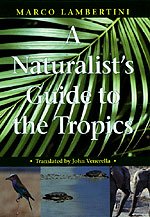
Whether you're a first-time visitor or a veteran of many trips, this convenient guidebook can help you plan your vacation and serve as a knowledgeable companion to answer the many questions that may arise during the course of your journey. Why are tropical birds and fishes so colorful? What is an atoll, and how do they form? Why are tropical soils red and sterile, while rainforests are lush and green? Why does Madagascar have lemurs but not monkeys? Special features of the book include chapters on the conservation status of the Tropics and how to prepare with "caution without obsession" for tropical dangers such as infectious diseases and charging rhinoceroses.
The first comprehensive introduction to the natural history of the Tropics worldwide, A Naturalist's Guide to the Tropics has been completely revised and updated by the author and the translator to reflect the most current information available.
* first field guide in English to cover all the world's tropics, not just specific regions or countries
* more than 350 illustrations, many in color
* sturdy flexibound cover and compact size ideal for travelers
* boxes in text define scientific terms or explore side topics in more detail, such as "What Is Biodiversity?" and "Why Is Tropical Fauna So Colorful?"
* discusses tropical dangers and precautions to cope with them, such as vaccinations to obtain and foods to avoid
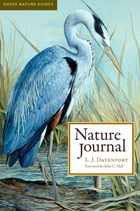
Nature Journal is an innovative presentation of the best columns and photographs from L. J. Davenport’s popular column in Alabama Heritage magazine. Readers of the magazine have come to relish his artful and often witty descriptions of common species encountered in the Alabama outdoors. But Nature Journal is designed to be much more than a mere collection of entertaining essays; it is also an educational tool—a means of instructing and encouraging readers in the art of keeping a nature journal for themselves.
Each of the 25 chapters is a self-contained lesson in close observation of species morphology, behavior, and habitat; research in the literature; nondestructive capture of the subject by photography or drawing; and written description of the total observed natural phenomenon. At the end of each account, stimulating questions and gentle directives guide the reader into making his or her own observations and recordings.
This book is intended for broad nature-study use in Alabama and throughout the southeast by the general reader and nature enthusiast alike, as well as visitors to museums and outdoor centers, and students of nature and nature writing at the high school and college levels. Beautifully designed to look like a personal journal, it is a perfect gift and treasured keepsake for all lovers of the natural world.
Publication supported in part by Samford University
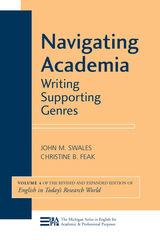
Navigating Academia is a bit different from the other volumes in the series because it focuses on the supporting genres that facilitate the more public genres that form the building blocks of an academic and/or research career. Included are statements of purpose for graduate school applications, letters of recommendation, and responses to journal reviewers.
One feature that these genres have in common is that they are largely hidden from public view; it is difficult to find examples of them in university libraries. Although guidance about these genres can increasingly be found on the Internet, this guidance is often too general to be helpful in an individual particular situation. This is unfortunate because in almost all cases, the individual needs to be seen as both a serious scholar, researcher, or instructor (whether beginning or getting established) and as a collegial but objective person. As a result, many of these academic communications need to be carefully considered, particularly with regard to the likely effect this communication will have on its intended recipients, who, more often than not, are established figures in the field (as with a job application letter). Because of the roles of these genres, this volume also differs somewhat from the others in that it is as much concerned with social academic practice as it is with more formal academic texts.
This volume represents a revision and expansion of the material on academic correspondence that appeared in English in Today's Research World.
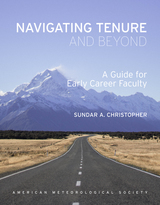
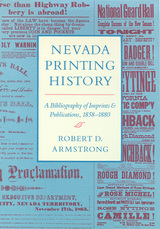
A detailed look at Nevada's printing history from 1858 through 1880. Includes proclamations, pamphlets, menus, government publications, church programs, and more. For Nevada historians, bibliographers, book collectors, and people who are interested in the printed records produced in Nevada toward the end of the nineteenth century.
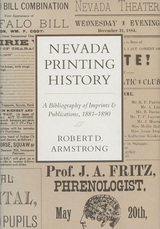
A detailed look at Nevada's printing history from 1881 through 1890. With over 1400 entries describing books, pamphlets, broadsides, state and local documents, fraternal and church publications, and a variety of other printed matter, this intriguing compilation serves as the companion volume to Armstrong's Nevada Printing History, 1858-1880. Armstrong includes annual summaries of events affecting the printing trade in Nevada as well as the locations and kinds of printing technology in use. This second volume also documents the planning and erection of a state printing office. Of particular interest are the summaries of individual publications that provide the reader with a picture of social, economic, and political viewpoints of the period. The author's research led him to more than 125 public institutions over a period of nearly twenty years. Historians, bibliographers, students of printing history and practice, collectors of Western Americana, antiquarian booksellers, and librarians will find this book to be an invaluable guide to Nevada's printing, its printers, and its history.
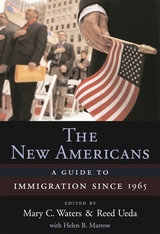
Listen to a short interview with Mary WatersHost: Chris Gondek | Producer: Heron & Crane
Salsa has replaced ketchup as the most popular condiment. A mosque has been erected around the corner. The local hospital is staffed by Indian doctors and Philippine nurses, and the local grocery store is owned by a Korean family. A single elementary school may include students who speak dozens of different languages at home. This is a snapshot of America at the turn of the twenty-first century.
The United States has always been a nation of immigrants, shaped by successive waves of new arrivals. The most recent transformation began when immigration laws and policies changed significantly in 1965, admitting migrants from around the globe in new numbers and with widely varying backgrounds and aspirations.
This comprehensive guide, edited and written by an interdisciplinary group of prominent scholars, provides an authoritative account of the most recent surge of immigrants. Twenty thematic essays address such topics as immigration law and policy, refugees, unauthorized migrants, racial and ethnic identity, assimilation, nationalization, economy, politics, religion, education, and family relations. These are followed by comprehensive articles on immigration from the thirty most significant nations or regions of origin. Based on the latest U.S. Census data and the most recent scholarly research, The New Americans is an essential reference for students, scholars, and anyone curious about the changing face of America.

From Kant to Kierkegaard, from Hegel to Heidegger, continental philosophers have indelibly shaped the trajectory of Western thought since the eighteenth century. Although much has been written about these monumental thinkers, students and scholars lack a definitive guide to the entire scope of the continental tradition. The most comprehensive reference work to date, this eight-volume History of Continental Philosophy will both encapsulate the subject and reorient our understanding of it. Beginning with an overview of Kant’s philosophy and its initial reception, the History traces the evolution of continental philosophy through major figures as well as movements such as existentialism, phenomenology, hermeneutics, and poststructuralism. The final volume outlines the current state of the field, bringing the work of both historical and modern thinkers to bear on such contemporary topics as feminism, globalization, and the environment. Throughout, the volumes examine important philosophical figures and developments in their historical, political, and cultural contexts.
The first reference of its kind, A History of Continental Philosophy has been written and edited by internationally recognized experts with a commitment to explaining complex thinkers, texts, and movements in rigorous yet jargon-free essays suitable for both undergraduates and seasoned specialists. These volumes also elucidate ongoing debates about the nature of continental and analytic philosophy, surveying the distinctive, sometimes overlapping characteristics and approaches of each tradition. Featuring helpful overviews of major topics and plotting road maps to their underlying contexts, A History of Continental Philosophy is destined to be the resource of first and last resort for students and scholars alike.
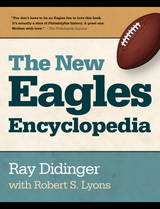
Didinger presents a year-by-year history of the franchise from its inception in 1933 through the 2013 season. There are profiles of more than 100 players, past and present, as well as every head coach and owner along with dozens of new photographs and stats, stats, and more stats.
The New Eagles Encyclopedia includes:
* More player profiles including new entries on Nick Foles, LeSean McCoy and Michael Vick.
* The end of the Andy Reid era and the arrival of Chip Kelly.
* Expanded chapters on Eagles in the Hall of Fame and other milestone moments.
* Summaries of every post-season game.
* A new chapter on the Eagles-Cowboys rivalry.
An essential addition to every fan's bookshelf, The New Eagles Encyclopedia is the definitive information source on the Philadelphia Eagles.
This book is not sanctioned by the NFL or its teams.

“A name is forever, or at least as long as taxonomy continues,” Barry Bolton writes, and here are all the names, antique and modern, of all the ants that are or ever were—from the arctic to the tropical, the fossilized to the living, the mislabeled to the newly christened members of the family Formicidae. For every name that has ever been applied to ants, the book supplies a history and an account of current usage, together with a fully documented indication of the present-day classification. Its comprehensive bibliography provides references to original description, synonymy, homonymy, changes in rank, status, and availability, and alterations in generic status.
Organized by family group, genus group, and species group, this meticulously detailed but easily used volume is the ultimate resource for myrmecology. Along with Bolton’s Identification Guide to the Ant Genera of the World, it will be the essential reference for anyone, expert or amateur, with an interest in ants.

THIS EDITION HAS BEEN REPLACED BY A NEWER 2003 EDITION.
This classic reference work is simply the best one-volume music dictionary available today. Its nearly 6,000 entries, written by more than 70 top musicologists, are consistently lucid and based on recent scholarship. The New Harvard Dictionary of Music contains among its riches superb articles on music of the 20th century, including jazz, rock, and mixed media as well as twelve-tone, serial, and aleatory music; comprehensive articles on the music of Africa, Asia, Latin America, and the Near East; entries on all the styles and forms in Western art music; and descriptions of instruments enriched by historical background. Short entries for quick reference--definitions and identifications--alternate with encyclopedia-length articles written by experts in each field. More than 220 drawings and 250 musical examples enhance the text.
Combining authoritative scholarship with concise, lively prose, The New Harvard Dictionary of Music is the essential guide for musicians, students, and everyone who listens to music.
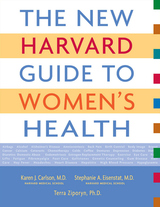
With the publication in 1996 of The Harvard Guide to Women's Health, women seeking answers to questions about their health had access to the combined expertise of physicians from three of the world's most prestigious medical institutions: Harvard Medical School, Massachusetts General Hospital, and Brigham and Women's Hospital. With complete information on women's health concerns, physical and behavioral, this A to Z reference quickly became a definitive resource, praised especially for its coverage of topics not previously considered under the umbrella of women's health. The New Harvard Guide to Women's Health reunites the authors to bring a valued health reference up to date for a new generation--and for those women who have come to rely on the Harvard Guide and are now wondering what to do about their health as they enter a new stage of life, asking questions like the following: I've been on hormone replacement therapy. Should I stop? How?
Could this rash be lupus?
I've been on the Pill. What is my risk for stroke?
Fat is bad, fat is good: What should I believe? And what's left to eat?
When does ordinary worry become chronic anxiety?
What screening tests do I need now?
In addition to revised recommendations reflecting the current medical thinking on menopause and hormone replacement therapy, the New Harvard Guide includes updated recommendations about cardiac health and heart disease--the #1 killer of women in the United States
entries reflecting recent advances in the understanding and treatment of autoimmune diseases
better coverage of health concerns throughout a woman's life span, from her first period to menopause and beyond, with a new entry on perimenopause
expanded nutritional recommendations, including a unique chart of the U.S. government's Daily Reference Intakes for micronutrients, broken down for teens and women whose needs may differ because they are pregnant, breastfeeding, or postmenopausal
updated information on over-the-counter medications, prescription drugs, procedures, screenings, and diagnostic tests
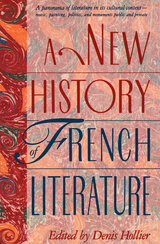
Designed for the general reader, this splendid introduction to French literature from 842 A.D.—the date of the earliest surviving document in any Romance language—to the present decade is the most compact and imaginative single-volume guide available in English to the French literary tradition. In fact, no comparable work exists in either language. It is not the customary inventory of authors and titles but rather a collection of wide-angled views of historical and cultural phenomena. It sets before us writers, public figures, criminals, saints, and monarchs, as well as religious, cultural, and social revolutions. It gives us books, paintings, public monuments, even TV shows.
Written by 164 American and European specialists, the essays are introduced by date and arranged in chronological order, but here ends the book’s resemblance to the usual history of literature. Each date is followed by a headline evoking an event that indicates the chronological point of departure. Usually the event is literary—the publication of an original work, a journal, a translation, the first performance of a play, the death of an author—but some events are literary only in terms of their repercussions and resonances. Essays devoted to a genre exist alongside essays devoted to one book, institutions are presented side by side with literary movements, and large surveys appear next to detailed discussions of specific landmarks.
No article is limited to the “life and works” of a single author. Proust, for example, appears through various lenses: fleetingly, in 1701, apropos of Antoine Galland’s translation of The Thousand and One Nights; in 1898, in connection with the Dreyfus Affair; in 1905, on the occasion of the law on the separation of church and state; in 1911, in relation to Gide and their different treatments of homosexuality; and at his death in 1922.
Without attempting to cover every author, work, and cultural development since the Serments de Strasbourg in 842, this history succeeds in being both informative and critical about the more than 1,000 years it describes. The contributors offer us a chance to appreciate not only French culture but also the major critical positions in literary studies today. A New History of French Literature will be essential reading for all engaged in the study of French culture and for all who are interested in it. It is an authoritative, lively, and readable volume.
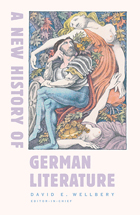
The revolutionary spirit that animates the culture of the Germans has been alive for at least twelve centuries, far longer than the dramatically fragmented and reshaped political entity known as Germany. German culture has been central to Europe, and it has contributed the transforming spirit of Lutheran religion, the technology of printing as a medium of democracy, the soulfulness of Romantic philosophy, the structure of higher education, and the tradition of liberal socialism to the essential character of modern American life.
In this book leading scholars and critics capture the spirit of this culture in some 200 original essays on events in German literary history. Rather than offering a single continuous narrative, the entries focus on a particular literary work, an event in the life of an author, a historical moment, a piece of music, a technological invention, even a theatrical or cinematic premiere. Together they give the reader a surprisingly unified sense of what it is that has allowed Meister Eckhart, Hildegard of Bingen, Luther, Kant, Goethe, Beethoven, Benjamin, Wittgenstein, Jelinek, and Sebald to provoke and enchant their readers. From the earliest magical charms and mythical sagas to the brilliance and desolation of 20th-century fiction, poetry, and film, this illuminating reference book invites readers to experience the full range of German literary culture and to investigate for themselves its disparate and unifying themes.
Contributors include: Amy M. Hollywood on medieval women mystics, Jan-Dirk Müller on Gutenberg, Marion Aptroot on the Yiddish Renaissance, Emery Snyder on the Baroque novel, J. B. Schneewind on Natural Law, Maria Tatar on the Grimm brothers, Arthur Danto on Hegel, Reinhold Brinkmann on Schubert, Anthony Grafton on Burckhardt, Stanley Corngold on Freud, Andreas Huyssen on Rilke, Greil Marcus on Dada, Eric Rentschler on Nazi cinema, Elisabeth Young-Bruehl on Hannah Arendt, Gordon A. Craig on Günter Grass, Edward Dimendberg on Holocaust memorials.
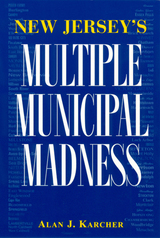
Alan Karcher looks at the history and high cost of New Jersey's multiple municipalities. He investigates the economic considerations, political pressures, and personal agendas that created the bizarre configurations dividing the Garden State, while analyzing the public policies that allowed and even encouraged the formation of new municipalities. Karcher also examines the political dynamics that thwarted every effort of New Jersey metropolises to join the front ranks of major American cities.
Karcher identifies the major motivations behind the unparalleled experience of New Jersey's municipal multiplication. He delves deeply into the primary causes of new lines being drawn, such as road appropriations, the location of a railroad station, control of a local school district, the regulation of alcohol sales, and the preservation of exclusivity prior to the acceptance of zoning. He also assesses the present situation and what has happened in the past 60 years since the municipal multiplication madness ceased, calling on elected officials to confront reality and correct yesterday's excesses.
The genesis of the present political map of the state is a story that while interesting is not always charming, while fascinating is far from edifying. Little in the history can be called quaint. Rather it is a story of separation and exclusion, of division and greed, of preservation of prerogatives and prejudices. It is a story that supports the conclusion that these lines are rarely the product of chance, rather they were drawn by politicians with very human foibles and frailties, and with very narrow agendas-agendas that have proven to be egregiously expensive for today's taxpayers.
Alan Karcher, the former Speaker of the New Jersey Assembly during the activist 1980s, currently practices municipal law in Middlesex County. He represents the third generation of his family to serve as a member of the New Jersey State Legislature.
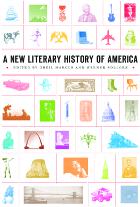
America is a nation making itself up as it goes along—a story of discovery and invention unfolding in speeches and images, letters and poetry, unprecedented feats of scholarship and imagination. In these myriad, multiform, endlessly changing expressions of the American experience, the authors and editors of this volume find a new American history.
In more than two hundred original essays, A New Literary History of America brings together the nation’s many voices. From the first conception of a New World in the sixteenth century to the latest re-envisioning of that world in cartoons, television, science fiction, and hip hop, the book gives us a new, kaleidoscopic view of what “Made in America” means. Literature, music, film, art, history, science, philosophy, political rhetoric—cultural creations of every kind appear in relation to each other, and to the time and place that give them shape.
The meeting of minds is extraordinary as T. J. Clark writes on Jackson Pollock, Paul Muldoon on Carl Sandburg, Camille Paglia on Tennessee Williams, Sarah Vowell on Grant Wood’s American Gothic, Walter Mosley on hard-boiled detective fiction, Jonathan Lethem on Thomas Edison, Gerald Early on Tarzan, Bharati Mukherjee on The Scarlet Letter, Gish Jen on Catcher in the Rye, and Ishmael Reed on Huckleberry Finn. From Anne Bradstreet and John Winthrop to Philip Roth and Toni Morrison, from Alexander Graham Bell and Stephen Foster to Alcoholics Anonymous, Life, Chuck Berry, Alfred Hitchcock, and Ronald Reagan, this is America singing, celebrating itself, and becoming something altogether different, plural, singular, new.
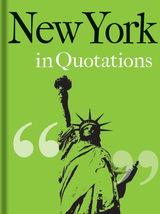

Included for the first time in any language is an extensive account of Nietzsche's finances and his relationships with his publishers. Schaberg reveals a man who was obsessed with money, fought bitterly with his publishers, complained about his readers, and all the while continued to produce more and more books that went unread. He also reveals the influential role of Nietzsche's sister Elizabeth, who provoked disputes between Nietzsche and his publisher during her brother's lifetime and deliberately falsified information after his death.

From Kant to Kierkegaard, from Hegel to Heidegger, continental philosophers have indelibly shaped the trajectory of Western thought since the eighteenth century. Although much has been written about these monumental thinkers, students and scholars lack a definitive guide to the entire scope of the continental tradition. The most comprehensive reference work to date, this eight-volume History of Continental Philosophy will both encapsulate the subject and reorient our understanding of it. Beginning with an overview of Kant’s philosophy and its initial reception, the History traces the evolution of continental philosophy through major figures as well as movements such as existentialism, phenomenology, hermeneutics, and poststructuralism. The final volume outlines the current state of the field, bringing the work of both historical and modern thinkers to bear on such contemporary topics as feminism, globalization, and the environment. Throughout, the volumes examine important philosophical figures and developments in their historical, political, and cultural contexts.
The first reference of its kind, A History of Continental Philosophy has been written and edited by internationally recognized experts with a commitment to explaining complex thinkers, texts, and movements in rigorous yet jargon-free essays suitable for both undergraduates and seasoned specialists. These volumes also elucidate ongoing debates about the nature of continental and analytic philosophy, surveying the distinctive, sometimes overlapping characteristics and approaches of each tradition. Featuring helpful overviews of major topics and plotting road maps to their underlying contexts, A History of Continental Philosophy is destined to be the resource of first and last resort for students and scholars alike.
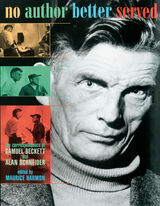
For Alan Schneider, directing Endgame, Samuel Beckett lays out the play’s philosophy, then adds: “Don’t mention any of this to your actors!”
He claimed he couldn’t talk about his work, but Beckett proves remarkably forthcoming in these pages, which document the thirty-year working relationship between the playwright and his principal producer in the United States. The correspondence between Beckett and Schneider offers an unparalleled picture of the art and craft of theater in the hands of two masters. It is also an endlessly enlightening look into the playwright’s ideas and methods, his remarks a virtual crib sheet for his brilliant, eccentric plays.
Alan Schneider premiered five of Beckett’s plays in the United States, including Waiting for Godot, Krapp’s Last Tape, and Endgame, and directed a number of revivals. Preparing for each new production, the two wrote extensive letters—about intended tone, conception of characters, irony and verbal echoes, staging details for scenes, delivery of individual lines. From such details a remarkable sense of the playwright’s vision emerges, as well as a feel for the director’s task. Of Godot, Beckett wrote to Schneider, “I feel my monster is in safe keeping.” His confidence in the director, and Schneider’s persistent probing for a surer understanding of each play, have produced a marvelous resource: a detailed map of Beckett’s work in conception and in production.
The correspondence starts in December 1955, shortly after their first meeting, and continues to Schneider’s accidental death in March 1984 (when crossing a street to mail a letter to Beckett). The 500 letters capture the world of theater as well as the personalities of their authors. Maurice Harmon’s thorough notes provide a helpful guide to people and events mentioned throughout.
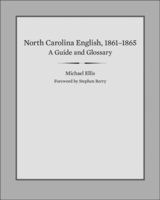
The core of the book is an alphabetically arranged glossary of words and expressions characteristic of mid–nineteenth century North Carolina, each containing excerpts from the letters themselves to illustrate meaning and usage. While the majority of the writers were Confederate soldiers and their family members, the collection also includes letters from slaves, former slaves, and African Americans from North Carolina serving in the Union Army. The soldiers’ letters rarely contain details about battles, except to list the names of relatives or neighbors among the killed or wounded. After a battle, a soldier might simply write, “the Like of ded men an horses I never saw before” or “we hav lost a heep of men and kild a heep of yankeys.” As Joel Howard of Lincoln County wrote home in June 1863, “I have bin in the ware and Saw the ware and heard tell of the ware till I have got tired of it. if I Could get clear of this ware I neve[r] want to Read of A nother.”
Food is perhaps the most common topic, followed by illness. Numerous terms relate to farming, clothing, religion, and the effects of the war itself, as well as entries for expressions that have long since disappeared from American English: in the gants, on the goose, and up the spout.
In addition to the glossary, Ellis offers an extensive overview of North Carolina English of the period, delves into the social background of the letter writers, and provides invaluable guidance to the ways in which Civil War letters should be read. A unique window into a largely neglected corner of our extraordinarily rich and regionally distinct language, this volume will prove an indispensable reference for scholars and students seeking to reconstruct the world of the common Civil War soldier.
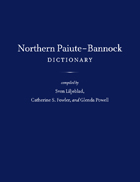
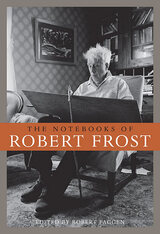
Robert Frost is one of the most widely read, well loved, and misunderstood of modern writers. In his day, he was also an inveterate note-taker, penning thousands of intense aphoristic thoughts, observations, and meditations in small pocket pads and school theme books throughout his life. These notebooks, transcribed and presented here in their entirety for the first time, offer unprecedented insight into Frost's complex and often highly contradictory thinking about poetics, politics, education, psychology, science, and religion--his attitude toward Marxism, the New Deal, World War--as well as Yeats, Pound, Santayana, and William James. Covering a period from the late 1890s to early 1960s, the notebooks reveal the full range of the mind of one of America's greatest poets. Their depth and complexity convey the restless and probing quality of his thought, and show how the unruliness of chaotic modernity was always just beneath his appearance of supreme poetic control.
Edited and annotated by Robert Faggen, the notebooks are cross-referenced to mark thematic connections within these and Frost's other writings, including his poetry, letters, and other prose. This is a major new addition to the canon of Robert Frost's writings.
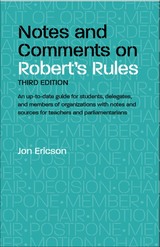
This third edition of Jon Ericson’s Notes and Comments on Robert’s Rules updates all references and page numbers to the tenth edition of Robert’s Rules of Order Newly Revised, published in 2000. Ericson’s guide to the authoritative parliamentary resource clarifies many of the concepts and rules that intimidate or confuse the members of organizations who use it, stressing that they have a choice in—and may, in fact, modify—the rules by which they are bound.
Ericson begins with the Order of Precedence, which he defines as the key concept in understanding and utilizing parliamentary procedure. He then uses a question-and-answer format in which a logical progression of essential parliamentary questions is explicitly answered, with a rationale for each rule. Throughout, he provides specific page references to Robert’s Rules. Through these three elements, he makes classic doctrine intelligible and workable, leading the reader step-by-step through the rules and their applications and, in the process, encouraging people to feel more positive about parliamentary procedure and their ability to use it.
“Far too many members, armed—or more accurately disarmed—with a misconception of parliamentary procedure, choose to spend a lifetime wondering what is going on and lamenting or blaming others when things fail to go their way,” writes Ericson in the Introduction. “Understanding parliamentary procedure also allows a person to have more fun—not just the fun of socializing outside the business meeting—but the fun of performing in the public arena.”
A popular, concise, and clear handbook, Notes and Comments on Robert’s Rules emphasizes the simple machinery of the system, relates its concepts to the procedures most commonly used in meetings and conventions, and encourages members to obtain and study, rather than shy away from Robert’s Rules of Order Newly Revised. This new edition also expands the number of question-and-answer sections and surveys the research in and commentary on the field since 1991. A laminated, removable card featuring simplified charts of parliamentary motions serves as an additional resource and is included with the volume.
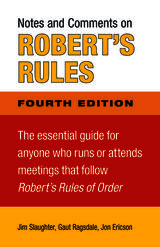
While Robert’s Rules of Order has long been the standard guide to parliamentary procedure, many readers find the manual too daunting and complex to utilize its full potential. In Notes and Comments on "Robert’s Rules", fourth edition, authors Jim Slaughter, Gaut Ragsdale, and Jon Ericson skillfully guide users through the intricate pathways of the latest edition of Robert’s Rules, transforming the often intimidating parliamentary guidebook into an easy-to-use tool. Notes and Comments explains in simple terms the individual motions found in Robert’s Rules, presents extensive tips and suggestions regarding possible modifications to Robert’s practices; allows readers to witness the vigorous debate about the rules within the notes section; and compares major parliamentary authorities. A reader-friendly question-and-answer format provides immediate solutions to the most common quandaries that arise during the meeting process, and a card featuring simplified charts of parliamentary motions is available for the user’s quick reference.
An essential volume for members of nonprofits, voluntary associations, unions, condo and homeowner associations, student organizations, and government bodies, Notes and Comments on “Robert’s Rules” makes parliamentary procedure accessible to meeting participants as never before. Each section of this authoritative, straightforward guide is designed to empower participants with the confidence and knowledge necessary to navigate any meeting, large or small, with the utmost efficiency.
2013 Winner of the Phifer Award from the National Communication Association
READERS
Browse our collection.
PUBLISHERS
See BiblioVault's publisher services.
STUDENT SERVICES
Files for college accessibility offices.
UChicago Accessibility Resources
home | accessibility | search | about | contact us
BiblioVault ® 2001 - 2024
The University of Chicago Press









